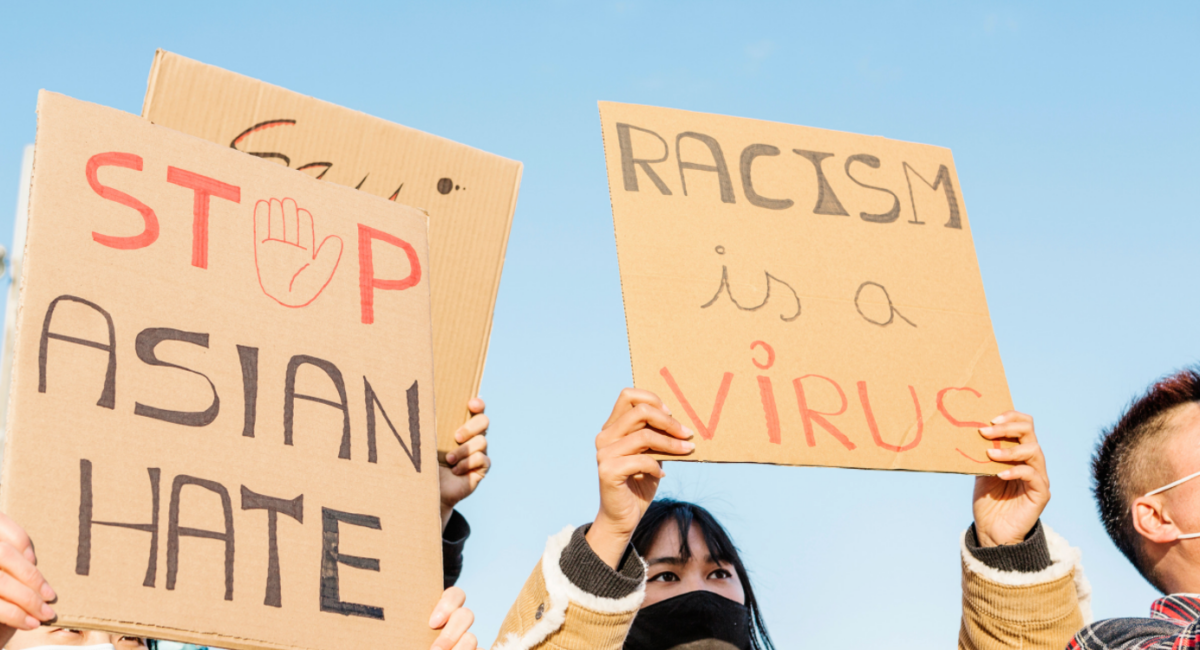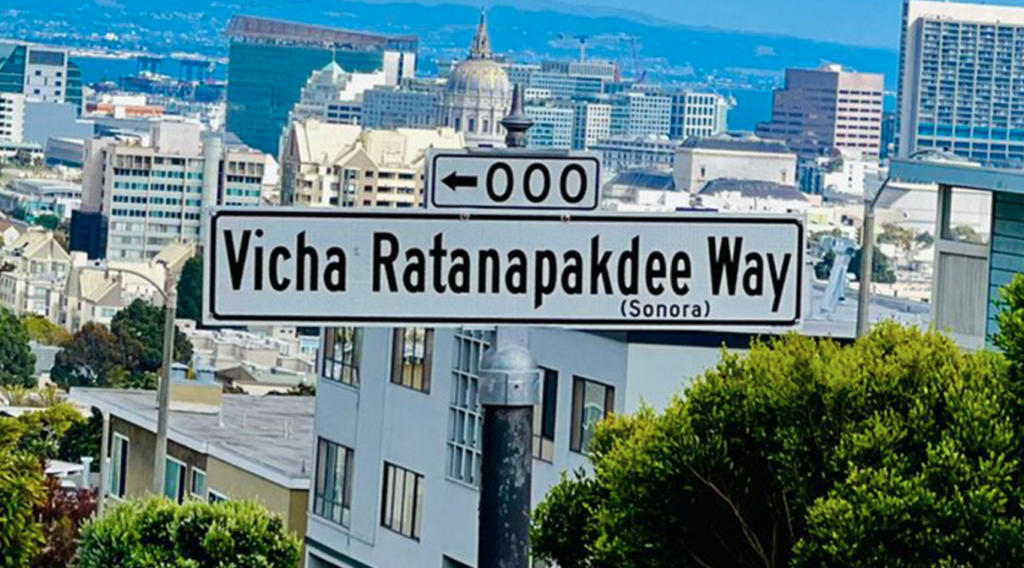Ethnic media: Labor of love or necessity?

FILE PHOTO
I got my Labor Day message last week when I met for the first time Andy Wong of San Francisco’s Chinese for Affirmative Action.
The significance of that will be revealed later in the column.
But first, for you Tiger Asians out there who want some red meat, let’s begin with the obvious. Wong is one of the advocates trying to keep the “Stop AAPI Hate” movement alive. And maybe try to expand it with a movement to simply “Stop Hate.”
And that’s a question worth exploring: Is the fight to “Stop AAPI Hate” over? Done? Is it ever done?
The pandemic increase in AAPI hate brought on such an awareness. Remember how people were shocked to see just who gets attacked in AAPI hate instances.
It’s not just Chinese people but Filipinos, Indians, Thai… All of us.
Many people were also stunned that the number of transgressions from micro to full-fledged reported hate crimes were in the tens of thousands. It shocked mainstream media enough to do more stories about all of our communities and their fears.
It was as if they had never seen us before.
But that period seems to have faded.
In 2022, hate crimes against AAPIs in California decreased 43 percent, according to California Assemblyman Phil Ting.
Nowadays, the most visible transgression against Asians is improperly identifying Kamala Harris. Yes, she can be both Asian American and Black at the same time. It’s not hard to identify her as such on first reference. But many times her ID is just “Black.” Why the exclusion? Ignorance can be a form of micro-aggression.
Back to the big picture. The actual numbers are off their peak but the job fighting AAPI hate is far from over. The stats show a drop in crime, but what about their disposition?
One of the great under-covered AAPI hate cases is the murder of 84-year-old Vicha Ratanapakdee. He was one of the first random victims of AAPI hate when he was pushed to the ground by suspect Antoine Watson on Jan. 30, 2021, in San Francisco. Watson was ultimately arrested and remains in jail without bail for attempted murder. Ratanapakdee died later in the hospital. Yet, despite video of the incident, no hate crime charges have been filed.

Vicha Ratanapakdee Way in San Francisco/FILE PHOTO
Even more shocking is that 3 1/2 years later, no trial date has been set.
Where’s the justice?
#StopAAPIHate has been successful in making us all aware of the problem. But once we’re in the slow-moving justice system, we’re all being failed: victims, defendants and our communities.
In California, home to the largest AAPI population in the nation, 1,970 hate crimes were reported in 2023. Only 5 went to trial, according to data from the California Attorney General’s office. In 2021, at the peak of the crimes against Asian, just one case went to trial, according to a story by Ethnic Media Services.
Cases rarely get to the finish line. Where’s the justice?
We can do one thing right – to make people aware through ethnic media and community services. But now even that’s endangered.
California Assemblyman Ting has done his share. He’s brought forward nearly $250 million in public funds in three years to address discrimination, bullying, harassment and other biases. There’s even a hotline available with care coordinators in 200 languages that can get help at 833.8NO.HATE, or 833.866.4283.
But nothing is permanent, and when the annual funding round ends in 2026, that’s it.
So among ethnic community organizations, media orgs especially, there’s a scramble to make sure the effort is kept alive.
And that’s where Andy Wong comes in.
Wong, the Chinese for Affirmative Action advocate who led the move to get the funding in California in the first place, was a panelist at a group meeting of ethnic media practitioners from California in Sacramento. It included Asian, Black, Latino and LGBTQ members who are part of a collaboration between Ethnic Media Services and California Black Media.
Events like this are the way journalists and media practitioners from all backgrounds can convene, converse and form more meaningful coalitions among communities to address various issues.
Wong was sounding the alarm that hate shouldn’t outlast the funding to fight it. One takeaway is that in California, the No. 1 group victimized by hate are Blacks. It’s beyond AAPIs.
Should we work together? Of course. One Black publisher stood up and urged for the inclusion of the black community in future efforts.
Meeting Andy Wong
I went to Wong afterwards to interview him.
“Emil?” he said. “You’re a legend.”
What? I was humbled.
“I’ve been following you for so long because you were one of the only AAPI voices that continued to editorialize and opine on the issues that impacted our community,” Wong said.
I was stunned. Me?
“Your thought leadership has sustained a whole generation of AAPI advocates. I just can’t believe I finally met you in person. I remember especially early on with Asian Week, but even now, just seeing what your thoughts were on any given issue, because you always had a take. You had a specific take,” he said. “You need to keep sharing your thoughts.”
Are you sure you have the right guy?
“I really mean it,” Wong said. “I’ve been following you for so long; it’s funny I can’t believe I’m finally meeting you in person. I just remember reading so many of your columns because you’re prolific. I just appreciate your perspective. There weren’t a lot of people like you.”
They were the kindest words I had ever heard from a reader, in the 29 years I’ve written a weekly Asian American issues column, the last 14 on the AALDEF website
One writes never knowing who is out there. And when an Andy Wong, an advocate for a new generation of AAPIs, meets you at a conference, it’s the validation that the words in a column or post mean something.
I was at that conference primarily to emcee the awards show where journalists from the ethnic media in California were honored for their work.
I was just the Ryan Seacrest for the awards.
I didn’t win an award that night.
Frankly, Andy’s acknowledgment was my award and a reminder why I consider the columns and essays I’ve written in the ethnic media to be the most important work of my life.
It was a Labor Day gift, coming at a good time.
Working in the ethnic media is often described as a “labor of love.” It really is a labor of necessity.
Without it, our communities remain invisible.
I thank readers like Andy Wong who’ve let me know that being public about my Asian American opinion has had some impact.
Inspiring others to speak up for themselves and take action, that’s a unique Asian American calling when the preferred stance for generations has been silence.
Emil Guillermo is a journalist and commentator. He writes Emil Amok for the Inquirer.net’s USA Channel. See him at YouTube.com/@emilamok1 . Contact: www.amok.com
You may like: The resilience of Vilma Kari: Standing strong against hate

